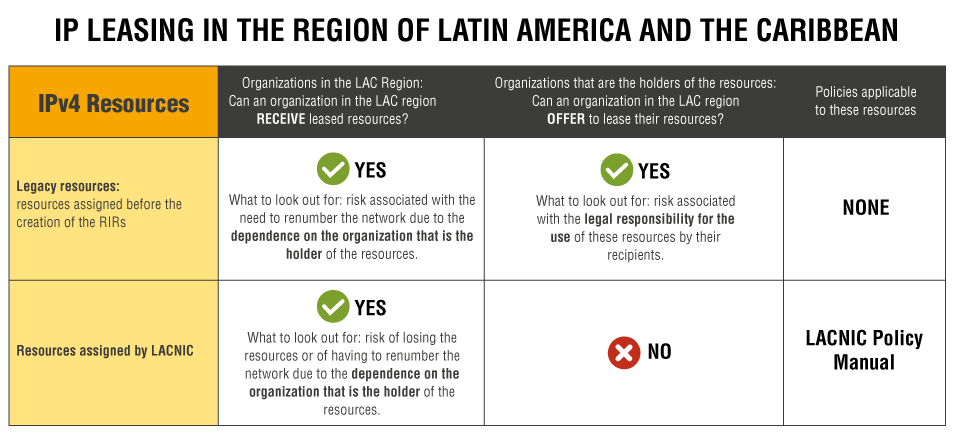IP Address Leasing: Creating a Space for Dialogue
28/11/2023

By Oscar Robles, LACNIC CEO
We at LACNIC have promoted a space for dialogue among the community on a topic on which there has been limited open debate: IP address leasing in the region. The lack of conversation on this matter meant that the traditional position of prohibiting IP address leasing was the only option on the table. However, since leasing was not allowed, no one spoke about the issue or the consequences of this practice both inside and outside our region.
It was within this context that we created a space for dialogue at our latest event in Fortaleza, where the community was able to talk and put up for discussion different points of view and positions around this issue. Discussions are always positive, as they are the mechanism that allows different perspectives to be understood and converge. This conversation helped demystify certain concepts, generate dialogue, and integrate different opinions about IPv4 addresses in the region. In fact, there are currently two policy proposals on this topic under discussion on the LACNIC Public Forum.
Our question is, should we continue to consider that IPv4 address leasing does not justify the use of IP address space?This question will have to be answered by our community through these discussions that have just begun. Starting to allow the lease of Internet addresses without promoting a meaningful discussion on the topic would be cause for concern, regardless of how popular this position may be. Maintaining the restriction without considering the alternative position would be equally concerning. Hence our interest in maintaining this dialogue and seeking to reach a mature position, whatever that may be. We cannot turn a blind eye to this practice that is happening both inside and outside our region, despite the fact that it is not a valid justification for the use of IP space. Neither can we ignore the tactics that some address space holders employ to evade or circumvent the application of our policies by transferring LACNIC space to other regions which do allow leasing.
Why has IP leasing increased its relevance? IPv4 address scarcity is beginning to escalate in the region, and LACNIC’s wait list does not provide an immediate solution to ISPs’ immediate need for IPv4 space. It seems that currently the only effective way to obtain IPv4 resources is through leasing. The other way to receive IPv4 space is through transfers, but this requires a greater investments on the part of those who receive the resources.
Why are IPv4 addresses being offered if they are scarce? Prior to the establishment of the RIRs, during the 80s and 90s, certain universities and corporations —primarily in the United States and Europe— were allocated an excess of IPv4 space, some receiving up to a /8, equivalent to 16 million IP addresses, which they never fully utilized.
It is estimated that approximately forty /8s, equivalent to more than 600 million addresses that are part of this legacy space, remain unused and are available to the highest bidder on the secondary market, whether through transfers or leasing arrangements.
Resources assigned by our Registry are governed by the LACNIC Policy Manual. This means that organizations that are not the holders of resources assigned by LACNIC cannot offer them for leasing, as this is not considered a justification for the use of resources assigned by LACNIC.
On the other hand, any organization in our region may receive leased resources without incurring a fault. However, the organization receiving the resources assumes the risk of validating that the entity leasing the IPv4 resources is their legitimate holder and that they will remain the holders of such resources (i.e., that they will not lose them due to revocation) for the duration of the lease agreement and therefore that they will not have to renumber in the future.

Likewise, the entity leasing the resources continues to be their holder, so it will continue to appear in the WHOIS database and will be responsible before the public and the authorities for the use of these resources by the organization receiving them through lease arrangements. Therefore, in the case of IP address leasing, the parties must sign an agreement that establishes this relationship, as well as the responsibility for the use of the resources. In the absence of such an agreement, the holder of the resources registered in the WHOIS database will be legally responsible and may have criminal implications in case of uses that infringe the legal regulations in place in any jurisdiction.
As we can see, this is a complex issue. Nevertheless, we trust that our community will continue to talk about and discuss the topic so that we can soon clarify or define these rules.
The views expressed by the authors of this blog are their own and do not necessarily reflect the views of LACNIC.